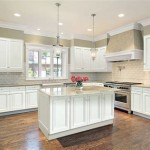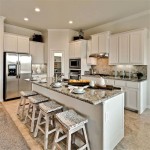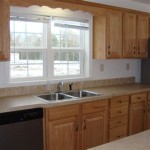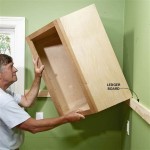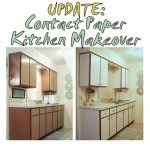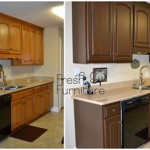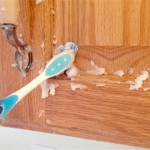Kitchen Cabinet Bottom Moulding: The Essential Guide
Kitchen cabinet bottom moulding, often overlooked, plays a crucial role in the overall appearance and functionality of your kitchen cabinets. It serves not only as an aesthetic enhancement but also as a practical solution for concealing gaps and providing structural support.
Types of Kitchen Cabinet Bottom Moulding
Various types of bottom mouldings are available, each offering unique styles and purposes:
- Scribe Moulding: Conforms to the contours of your floor, eliminating gaps and providing a seamless transition.
- Bullnose Moulding: A rounded edge moulding that adds an elegant and timeless touch.
- Cove Moulding: A curved profile that creates a sophisticated and classic look.
- Shoe Moulding: A versatile moulding that can be placed at the base of cabinets or around baseboards to hide gaps and uneven floors.
- Quarter Round Moulding: A small, rounded moulding that adds subtle detailing and can be used to conceal small gaps.
Materials for Kitchen Cabinet Bottom Moulding
Mouldings come in various materials, each with its own advantages and disadvantages:
- Wood: Natural, durable, and versatile, but requires finishing and maintenance.
- Vinyl: Affordable, waterproof, and easy to install, but may not be as durable as wood.
- Composite: A blend of wood fibers and plastic, offering durability, moisture resistance, and low maintenance.
- MDF: A type of engineered wood that is moisture-resistant, but requires painting or finishing.
Benefits of Kitchen Cabinet Bottom Moulding
In addition to aesthetics, bottom moulding provides several functional benefits:
- Conceals Gaps: Fills in gaps between cabinets and the floor, creating a clean and finished look.
- Protects Cabinets: Protects the base of cabinets from moisture, dirt, and wear and tear.
- Provides Structural Support: Adds stability to cabinet bases, preventing them from shifting or wobbling.
- Improves Soundproofing: Blocks noise from the floor, creating a quieter space.
- Enhances Hygiene: Helps prevent dirt and debris from accumulating beneath cabinets.
Choosing the Right Bottom Moulding
When selecting bottom moulding, consider these factors:
- Cabinet Style: Choose a moulding that complements the style of your cabinets, whether traditional, modern, or transitional.
- Floor Type: Certain moulding types are better suited for different floor types, e.g., scribe moulding for uneven floors.
- Material: Consider the material's durability, moisture resistance, and maintenance requirements in relation to your kitchen environment.
- Size: The size of the moulding should be proportional to the size of your cabinets and the height of the gaps you need to conceal.
- Budget: Mouldings vary in price, so determine a budget before making your selection.
Installation Tips
For a professional-looking installation:
- Measure the length of the gap you need to cover and cut the moulding accordingly.
- Apply wood glue or nails to the back of the moulding and press it firmly into place.
- Use shims or spacers to ensure the moulding is level and flush with the floor.
- Caulk any gaps between the moulding and the cabinet base or floor.
Conclusion
Kitchen cabinet bottom moulding is an essential element that not only enhances the aesthetics of your kitchen but also provides functional benefits. By choosing the right type of moulding and installing it correctly, you can create a seamless, finished, and well-protected cabinet system that adds value and style to your home.

Easy And Inexpensive Cabinet Updates The 15 Minute Fix Adding Trim To Bottom Of Cabinets Rozy Home Kitchen Update

Adding Moldings To Your Kitchen Cabinets Remodelando La Casa

7 Types Of Cabinet Moldings And How To Use Them Properly

How To Get A Custom Cabinet Look Using Trim Sincerely Marie Designs

7 Types Of Cabinet Moldings And How To Use Them Properly

Adding Molding To Cabinets Make Them Look Built In Young House Love

10 Types Of Kitchen Cabinet Molding For Your Home

Moldings Finish And Trim With Gary Striegler Part 14

Diy Cabinet End Panels With Shaker Style Trim Average But Inspired

Easy And Inexpensive Cabinet Updates The 15 Minute Fix Adding Trim To Bottom Of Cabinets Rozy Home
Related Posts


